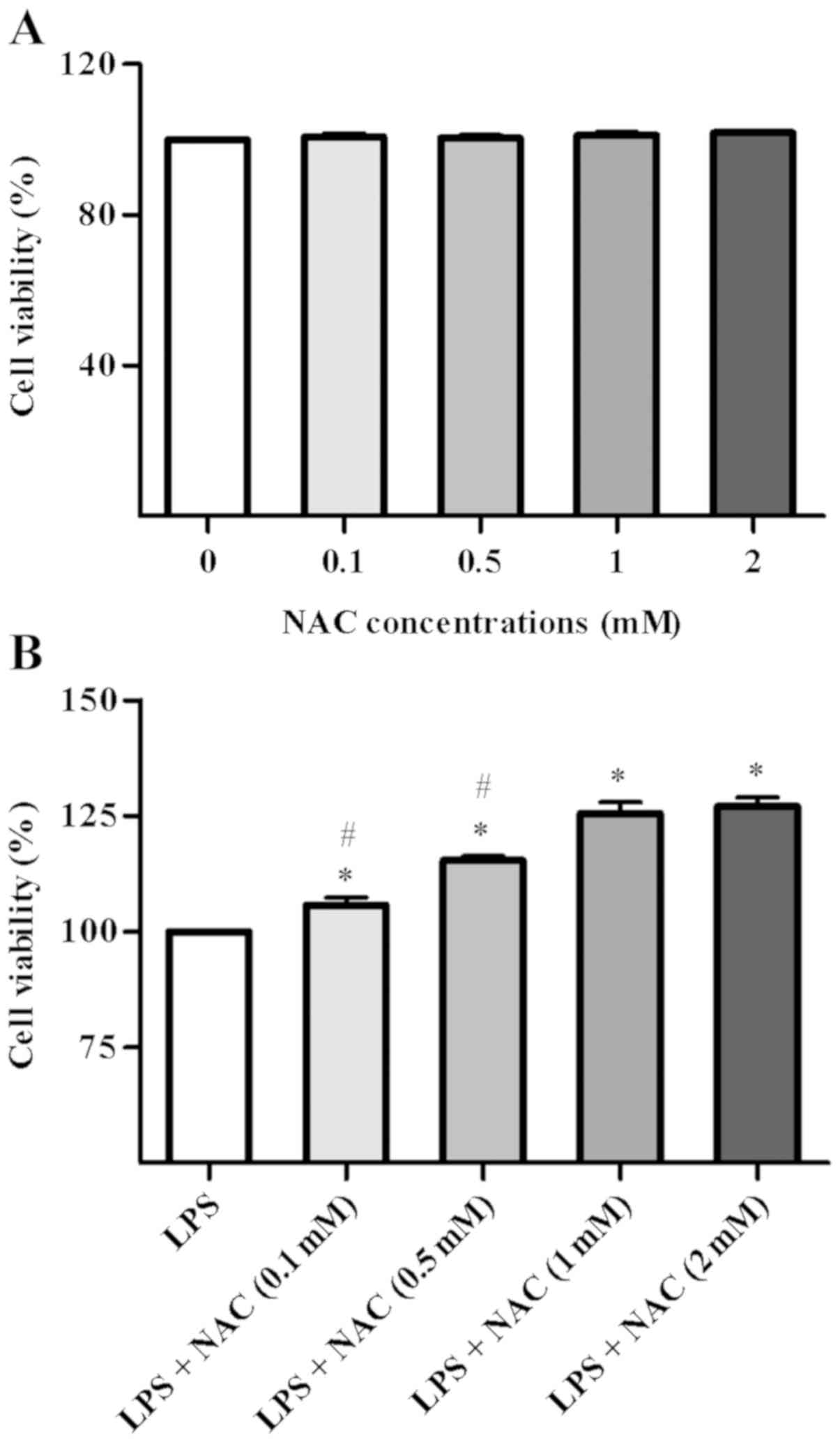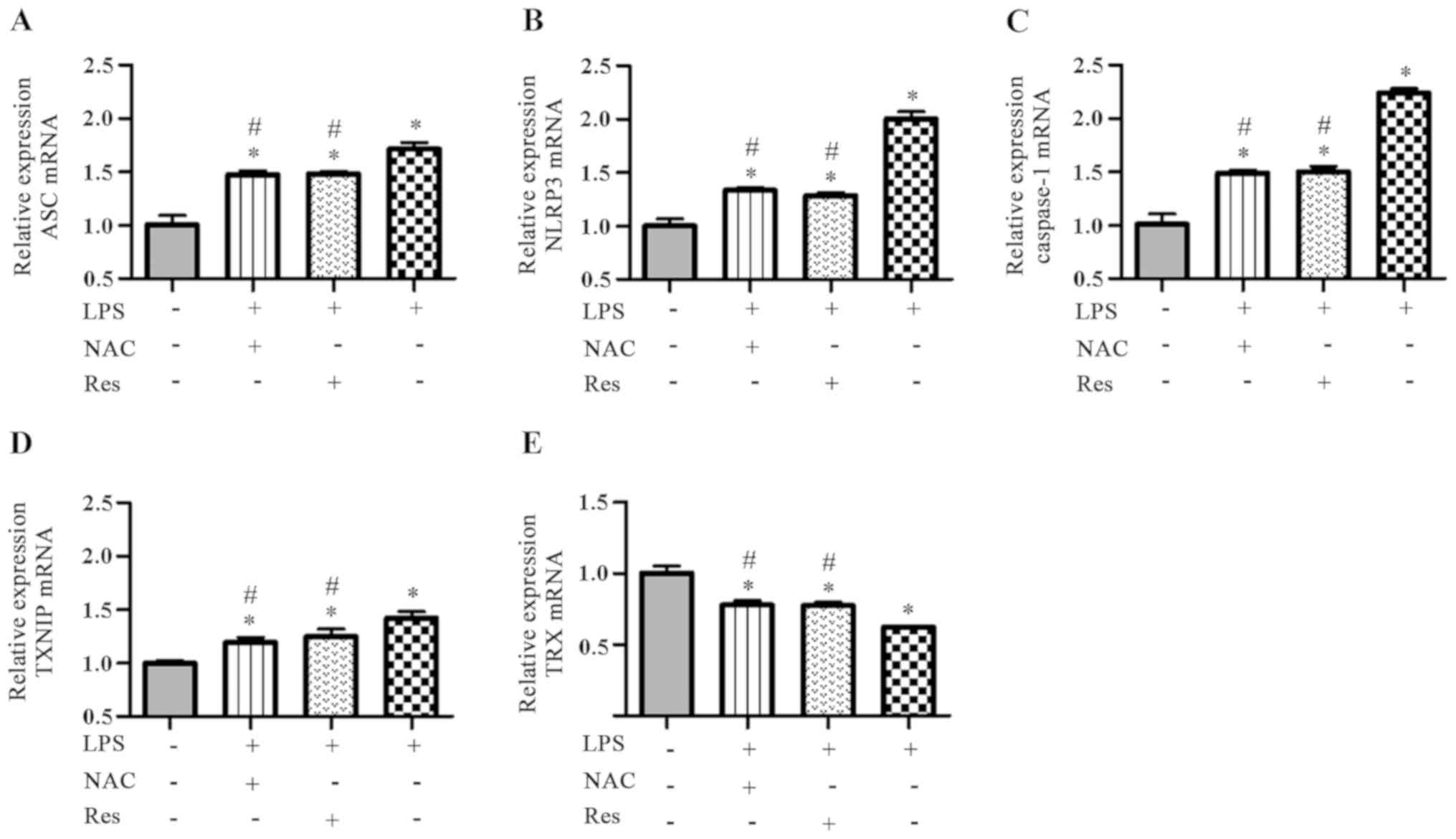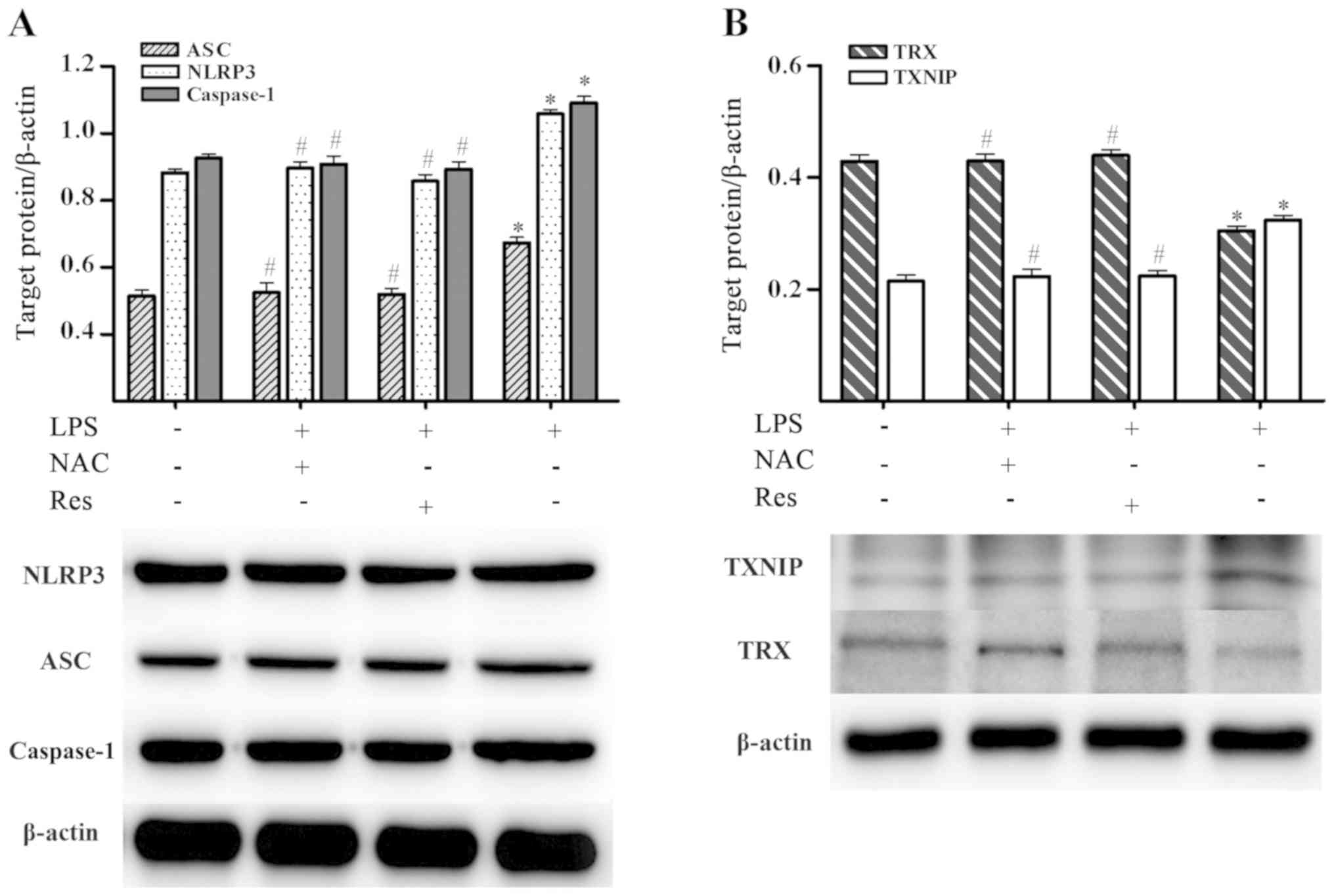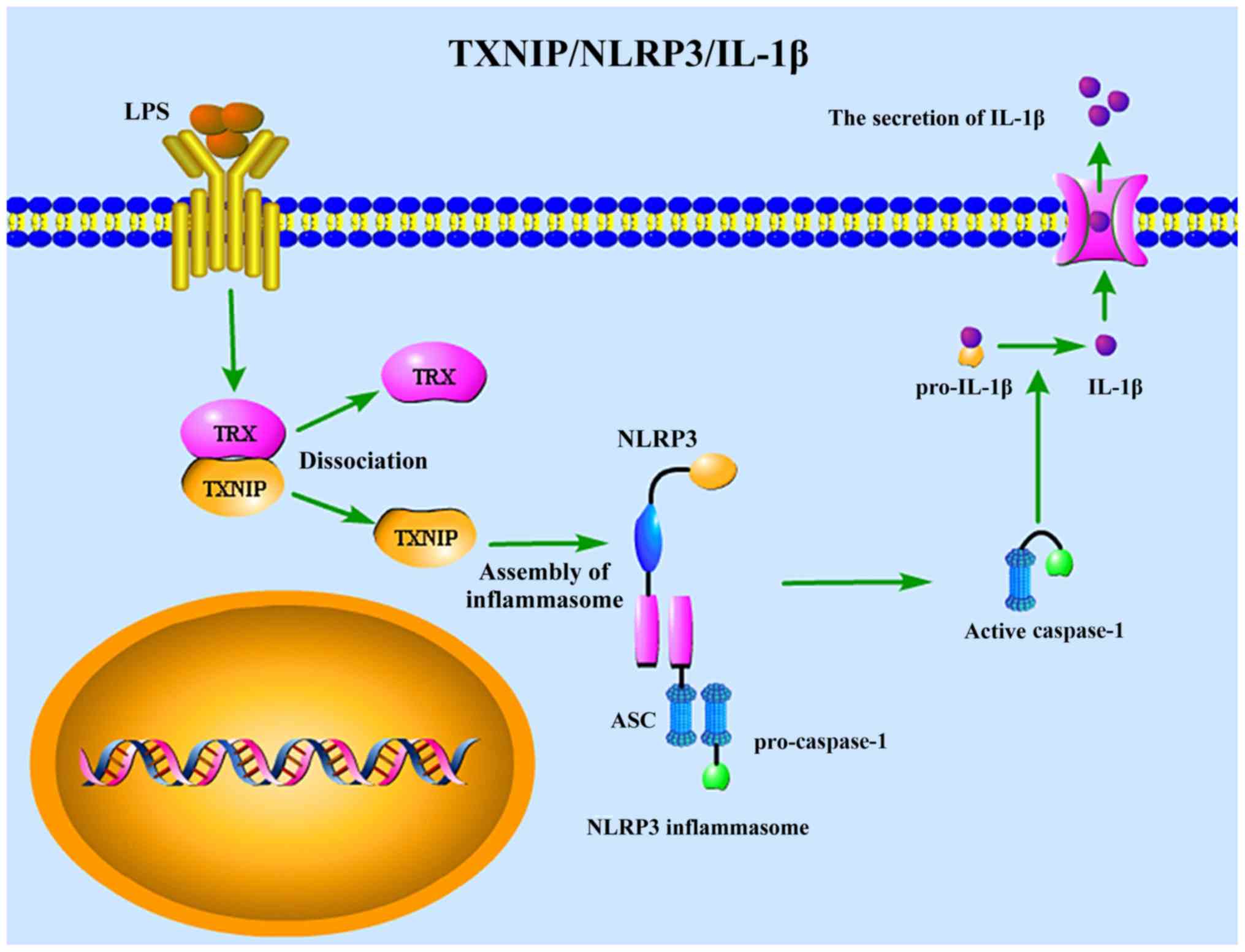|
1
|
Berglundh T, Armitage G, Araujo MG,
Avila-Ortiz G, Blanco J, Camargo PM, Chen S, Cochran D, Derks J,
Figuero E, et al: Peri-implant diseases and conditions: Consensus
report of workgroup 4 of the 2017 world workshop on the
classification of periodontal and peri-implant diseases and
conditions. J Clin Periodontol. 45 (Suppl 20):3299–S291. 2018.
View Article : Google Scholar
|
|
2
|
Kinane DF, Stathopoulou PG and Papapanou
PN: Periodontal diseases. Nat Rev Dis Primers. 3:170382017.
View Article : Google Scholar : PubMed/NCBI
|
|
3
|
Eke PI, Borgnakke WS and Genco RJ: Recent
epidemiologic trends in periodontitis in the USA. Periodontol 2000.
82:257–267. 2020. View Article : Google Scholar : PubMed/NCBI
|
|
4
|
Dreyer H, Grischke J, Tiede C, Eberhard J,
Schweitzer A, Toikkanen SE, Glöckner S, Krause G and Stiesch M:
Epidemiology and risk factors of peri-implantitis: A systematic
review. J Periodontal Res. 53:657–681. 2018. View Article : Google Scholar : PubMed/NCBI
|
|
5
|
Eke PI, Thornton-Evans GO, Wei L,
Borgnakke WS, Dye BA and Genco RJ: Periodontitis in US adults:
National health and nutrition examination survey 2009–2014. J Am
Dent Assoc. 149:576–588.e6. 2018. View Article : Google Scholar : PubMed/NCBI
|
|
6
|
Derks J, Schaller D, Hakansson J,
Wennstrom JL, Tomasi C and Berglundh T: Effectiveness of implant
therapy analyzed in a Swedish population: Prevalence of
peri-implantitis. J Dent Res. 95:43–49. 2016. View Article : Google Scholar : PubMed/NCBI
|
|
7
|
Monje A, Insua A and Wang HL:
Understanding peri-implantitis as a plaque-associated and
site-specific entity: On the local predisposing factors. J Clin
Med. 8:2792019. View Article : Google Scholar
|
|
8
|
Lamont RJ, Koo H and Hajishengallis G: The
oral microbiota: Dynamic communities and host interactions. Nat Rev
Microbiol. 16:745–759. 2018. View Article : Google Scholar : PubMed/NCBI
|
|
9
|
Singhrao SK and Olsen I: Assessing the
role of Porphyromonas gingivalis in periodontitis to
determine a causative relationship with Alzheimer's disease. J Oral
Microbiol. 11:15634052019. View Article : Google Scholar : PubMed/NCBI
|
|
10
|
Wang L, Yang Y, Xiong X, Yu T, Wang X,
Meng W, Wang H, Luo G and Ge L: Oral lichen-planus-associated
fibroblasts acquire myofibroblast characteristics and secrete
pro-inflammatory cytokines in response to Porphyromonas
gingivalis lipopolysaccharide stimulation. BMC Oral Health.
18:1972018. View Article : Google Scholar : PubMed/NCBI
|
|
11
|
Guo L, Zhang H, Li W, Zhan D and Wang M:
N-acetyl cysteine inhibits lipopolysaccharide-mediated induction of
interleukin-6 synthesis in MC3T3-E1 cells through the NF-κB
signaling pathway. Arch Oral Biol. 93:149–154. 2018. View Article : Google Scholar : PubMed/NCBI
|
|
12
|
Zhang ZZ, Xiong T, Zheng R, Huang JL and
Guo L: N-acetyl cysteine protects HUVECs against
lipopolysaccharide-mediated inflammatory reaction by blocking the
NF-κB signaling pathway. Mol Med Rep. 20:4349–4357. 2019.PubMed/NCBI
|
|
13
|
Huang JL, Xiong T, Zhang ZZ, Tan YJ and
Guo L: Inhibition of the receptor for advanced glycation inhibits
lipopolysaccharide-mediated High mobility group protein B1 and
Interleukin-6 synthesis in human gingival fibroblasts through the
NF-κB signaling pathway. Arch Oral Biol. 105:81–87. 2019.
View Article : Google Scholar : PubMed/NCBI
|
|
14
|
Yu X, Quan J, Long W, Chen H, Wang R, Guo
J, Lin X and Mai S: LL-37 inhibits LPS-induced inflammation and
stimulates the osteogenic differentiation of BMSCs via P2X7
receptor and MAPK signaling pathway. Exp Cell Res. 372:178–187.
2018. View Article : Google Scholar : PubMed/NCBI
|
|
15
|
Čebatariūnienė A, Kriaučiūnaitė K,
Prunskaitė J, Tunaitis V and Pivoriūnas A: Extracellular vesicles
suppress basal and lipopolysaccharide-induced NFκB activity in
human periodontal ligament stem cells. Stem Cells Dev.
28:1037–1049. 2019. View Article : Google Scholar : PubMed/NCBI
|
|
16
|
Lian D, Dai L, Xie Z, Zhou X, Liu X, Zhang
Y, Huang Y and Chen Y: Periodontal ligament fibroblasts migration
injury via ROS/TXNIP/Nlrp3 inflammasome pathway with
Porphyromonas gingivalis lipopolysaccharide. Mol Immunol.
103:209–219. 2018. View Article : Google Scholar : PubMed/NCBI
|
|
17
|
Qiu Z, He YH, Ming H, Lei SQ, Leng Y and
Xia ZY: Lipopolysaccharide (LPS) aggravates high glucose- and
hypoxia/reoxygenation-induced injury through activating
ROS-dependent NLRP3 inflammasome-mediated pyroptosis in H9C2
cardiomyocytes. J Diabetes Res. 2019:81518362019. View Article : Google Scholar : PubMed/NCBI
|
|
18
|
Tang YS, Zhao YH, Zhong Y, Li XZ, Pu JX,
Luo YC and Zhou QL: Neferine inhibits LPS-ATP-induced endothelial
cell pyroptosis via regulation of ROS/NLRP3/caspase-1 signaling
pathway. Inflamm Res. 68:727–738. 2019. View Article : Google Scholar : PubMed/NCBI
|
|
19
|
Raudales JLM, Yoshimura A, Ziauddin SM,
Kaneko T, Ozaki Y, Ukai T, Miyazaki T, Latz E and Hara Y: Dental
calculus stimulates interleukin-1β secretion by activating NLRP3
inflammasome in human and mouse phagocytes. PLoS One.
11:e01628652016. View Article : Google Scholar : PubMed/NCBI
|
|
20
|
Shibata K: Historical aspects of studies
on roles of the inflammasome in the pathogenesis of periodontal
diseases. Mol Oral Microbiol. 33:203–211. 2018. View Article : Google Scholar : PubMed/NCBI
|
|
21
|
Li P, Allen H, Banerjee S, Franklin S,
Herzog L, Johnston C, McDowell J, Paskind M, Rodman L, Salfeld J,
et al: Mice deficient in IL-l beta-converting enzyme are defective
in production of mature IL-l beta and resistant to endotoxic shock.
Cell. 80:401–411. 1995. View Article : Google Scholar : PubMed/NCBI
|
|
22
|
Neuwelt EA, Pagel MA, Hasler BP,
Deloughery TG and Muldoon LL: Therapeutic efficacy of aortic
administration of N-acetylcysteine as a chemoprotectant against
bone marrow toxicity after intracarotid administration of
alkylators, with or without glutathione depletion in a rat model.
Cancer Res. 61:7868–7874. 2001.PubMed/NCBI
|
|
23
|
Rosic G, Selakovic D, Joksimovic J,
Srejovic I, Zivkovic V, Tatalović N, Orescanin-Dusic Z, Mitrovic S,
Ilic M and Jakovljevic V: The effects of N-acetylcysteine on
cisplatin-induced changes of cardiodynamic parameters within
coronary autoregulation range in isolated rat hearts. Toxicol Lett.
242:34–46. 2016. View Article : Google Scholar : PubMed/NCBI
|
|
24
|
Kelly GS: Clinical applications of
N-acetylcysteine. Altern Med Rev. 3:114–127. 1998.PubMed/NCBI
|
|
25
|
Shih WL, Chang CD, Chen HT and Fan KK:
Antioxidant activity and leukemia initiation prevention in vitro
and in vivo by N-acetyl-L-cysteine. Oncol Lett. 16:2046–2052.
2018.PubMed/NCBI
|
|
26
|
Zheng R, Tan YJ, Gu MQ, Kang T, Zhang H
and Guo L: N-acetyl cysteine inhibits lipopolysaccharide-mediated
synthesis of interleukin-1β and tumor necrosis factor-α in human
periodontal ligament fibroblast cells through nuclear factor-kappa
B signaling. Medicine (Baltimore). 98:e171262019. View Article : Google Scholar : PubMed/NCBI
|
|
27
|
Livak KJ and Schmittgen TD: Analysis of
relative gene expression data using real-time quantitative PCR and
the 2(-Delta Delta C(T)) method. Methods. 25:402–408. 2001.
View Article : Google Scholar : PubMed/NCBI
|
|
28
|
Huang C, Geng J and Jiang S: MicroRNAs in
regulation of osteogenic differentiation of mesenchymal stem cells.
Cell Tissue Res. 368:229–238. 2017. View Article : Google Scholar : PubMed/NCBI
|
|
29
|
Arvidson K, Abdallah BM, Applegate LA,
Baldini N, Cenni E, Gomez-Barrena E, Granchi D, Kassem M, Konttinen
YT, Mustafa K, et al: Bone regeneration and stem cells. J Cell Mol
Med. 15:718–746. 2011. View Article : Google Scholar : PubMed/NCBI
|
|
30
|
Hu D, Li K, Xie Y, Pan H, Zhao J, Huang L
and Zheng X: The combined effects of nanotopography and Sr ion for
enhanced osteogenic activity of bone marrow mesenchymal stem cells
(BMSCs). J Biomater Appl. 31:1135–1147. 2017. View Article : Google Scholar : PubMed/NCBI
|
|
31
|
Heng BC, Cao T, Stanton LW, Robson P and
Olsen B: Strategies for directing the differentiation of stem cells
into the osteogenic lineage in vitro. J Bone Miner Res.
19:1379–1394. 2004. View Article : Google Scholar : PubMed/NCBI
|
|
32
|
Lu L, Liu Y, Zhang X and Lin J: The
therapeutic role of bone marrow stem cell local injection in rat
experimental periodontitis. J Oral Rehabil. Jun 20–2019.(Epub ahead
of print). doi: 10.1111/joor.12843. View Article : Google Scholar
|
|
33
|
Han N, Zhang F, Li G, Zhang X, Lin X, Yang
H, Wang L, Cao Y, Du J and Fan Z: Local application of IGFBP5
protein enhanced periodontal tissue regeneration via increasing the
migration, cell proliferation and osteo/dentinogenic
differentiation of mesenchymal stem cells in an inflammatory niche.
Stem Cell Res Ther. 8:2102017. View Article : Google Scholar : PubMed/NCBI
|
|
34
|
Wu L, Zhang G, Guo C, Zhao X, Shen D and
Yang N: MiR-128-3p mediates TNF-α-induced inflammatory responses by
regulating Sirt1 expression in bone marrow mesenchymal stem cells.
Biochem Biophys Res Commun. 521:98–105. 2020. View Article : Google Scholar : PubMed/NCBI
|
|
35
|
Zhang L and Deng S: Effects of
astragaloside IV on inflammation and immunity in rats with
experimental periodontitis. Braz Oral Res. 33:e0322019. View Article : Google Scholar : PubMed/NCBI
|
|
36
|
Li H, Chen Z, Zhong X, Li J and Li W:
Mangiferin alleviates experimental peri-implantitis via suppressing
interleukin-6 production and toll-like receptor 2 signaling
pathway. J Orthop Surg Res. 14:3252019. View Article : Google Scholar : PubMed/NCBI
|
|
37
|
Cosme-Silva L, Dal-Fabbro R, Cintra LTA,
dos Santos VR, Duque C, Ervolino E, Bomfim SM and Gomes-Filho JE:
Systemic administration of probiotics reduces the severity of
apical periodontitis. Int Endod J. 52:1738–1749. 2019. View Article : Google Scholar : PubMed/NCBI
|
|
38
|
He Y, Hara H and Núñez G: Mechanism and
regulation of NLRP3 inflammasome activation. Trends Biochem Sci.
41:1012–1021. 2016. View Article : Google Scholar : PubMed/NCBI
|
|
39
|
Guo H, Callaway JB and Ting JP:
Inflammasomes: Mechanism of action, role in disease, and
therapeutics. Nat Med. 21:677–687. 2015. View Article : Google Scholar : PubMed/NCBI
|
|
40
|
Shin S and Brodsky IE: The inflammasome:
Learning from bacterial evasion strategies. Semin Immunol.
27:102–110. 2015. View Article : Google Scholar : PubMed/NCBI
|
|
41
|
Place DE and Kanneganti TD: Recent
advances in inflammasome biology. Curr Opin Immunol. 50:32–38.
2018. View Article : Google Scholar : PubMed/NCBI
|
|
42
|
Mangan MSJ, Olhava EJ, Roush WR, Seidel
HM, Glick GD and Latz E: Targeting the NLRP3 inflammasome in
inflammatory diseases. Nat Rev Drug Discov. 17:588–606. 2018.
View Article : Google Scholar : PubMed/NCBI
|
|
43
|
Baker PJ, Boucher D, Bierschenk D, Tebartz
C, Whitney PG, D'Silva DB, Tanzer MC, Monteleone M, Robertson AAB,
Cooper MA, et al: NLRP3 inflammasome activation downstream of
cytoplasmic LPS recognition by both caspase-4 and caspase-5. Eur J
Immunol. 45:2918–2926. 2015. View Article : Google Scholar : PubMed/NCBI
|
|
44
|
Feng H, Gu J, Gou F, Huang W, Gao C, Chen
G, Long Y, Zhou X, Yang M, Liu S, et al: High glucose and
lipopolysaccharide prime NLRP3 inflammasome via ROS/TXNIP pathway
in mesangial cells. J Diabetes Res. 2016:69731752016. View Article : Google Scholar : PubMed/NCBI
|
|
45
|
Xiaoyu H, Si H, Li S, Wang W, Guo J, Li Y,
Cao Y, Fu Y and Zhang N: Induction of heme oxygenas-1 attenuates
NLRP3 inflammasome activation in lipopolysaccharide-induced
mastitis in mice. Int Immunopharmacol. 52:185–190. 2017. View Article : Google Scholar : PubMed/NCBI
|
|
46
|
Bolívar BE, Vogel TP and Bouchier-Hayes L:
Inflammatory caspase regulation: Maintaining balance between
inflammation and cell death in health and disease. FEBS J.
286:2628–2644. 2019.PubMed/NCBI
|
|
47
|
Martinon F, Burns K and Tschopp Jr: The
inflammasome: A molecular platform triggering activation of
inflammatory caspases and processing of proIL-beta. Mol Cell.
10:417–426. 2002. View Article : Google Scholar : PubMed/NCBI
|
|
48
|
Lu WL, Song DZ, Yue JL, Wang TT, Zhou XD,
Zhang P, Zhang L and Huang DM: NLRP3 inflammasome may regulate
inflammatory response of human periodontal ligament fibroblasts in
an apoptosis-associated speck-like protein containing a CARD
(ASC)-dependent manner. Int Endod J. 50:967–975. 2017. View Article : Google Scholar : PubMed/NCBI
|
|
49
|
Dinarello CA: A clinical perspective of
IL-1β as the gatekeeper of inflammation. Eur J Immunol.
41:1203–1217. 2011. View Article : Google Scholar : PubMed/NCBI
|
|
50
|
Mantovani A, Dinarello CA, Molgora M and
Garlanda C: Interleukin-1 and related cytokines in the regulation
of inflammation and immunity. Immunity. 50:778–795. 2019.
View Article : Google Scholar : PubMed/NCBI
|
|
51
|
Devi TS, Lee I, Hüttemann M, Kumar A,
Nantwi KD and Singh LP: TXNIP links innate host defense mechanisms
to oxidative stress and inflammation in retinal Muller glia under
chronic hyperglycemia: Implications for diabetic retinopathy. Exp
Diabetes Res. 2012:1–19. 2012. View Article : Google Scholar
|
|
52
|
Wang CY, Xu Y, Wang X, Guo C, Wang T and
Wang ZY: Dl-3-n-Butylphthalide inhibits NLRP3 inflammasome and
mitigates Alzheimer's-like pathology via Nrf2-TXNIP-TrX axis.
Antioxid Redox Signal. 30:1411–1431. 2019. View Article : Google Scholar : PubMed/NCBI
|
|
53
|
Hou Y, Wang Y, He Q, Li L, Xie H, Zhao Y
and Zhao J: Nrf2 inhibits NLRP3 inflammasome activation through
regulating Trx1/TXNIP complex in cerebral ischemia reperfusion
injury. Behav Brain Res. 336:32–39. 2018. View Article : Google Scholar : PubMed/NCBI
|
|
54
|
Chen W, Zhao MJ, Zhao SZ, Lu QY, Ni LS,
Zou C, Lu L, Xu X, Guan HJ, Zheng Z and Qiu QH: Activation of the
TXNIP/NLRP3 inflammasome pathway contributes to inflammation in
diabetic retinopathy: A novel inhibitory effect of minocycline.
Inflamm Res. 66:157–166. 2017. View Article : Google Scholar : PubMed/NCBI
|
|
55
|
Liu Y, Lian K, Zhang L, Wang R, Yi F, Gao
C, Xin C, Zhu D, Li Y, Yan W, et al: TXNIP mediates NLRP3
inflammasome activation in cardiac microvascular endothelial cells
as a novel mechanism in myocardial ischemia/reperfusion injury.
Basic Res Cardiol. 109:4152014. View Article : Google Scholar : PubMed/NCBI
|
|
56
|
Zhang X, Zhang JH, Chen XY, Hu QH, Wang
MX, Jin R, Zhang QY, Wang W, Wang R, Kang LL, et al: Reactive
oxygen species-induced TXNIP drives fructose-mediated hepatic
inflammation and lipid accumulation through NLRP3 inflammasome
activation. Antioxid Redox Signal. 22:848–870. 2015. View Article : Google Scholar : PubMed/NCBI
|
|
57
|
Ma Z and Damania B: Editorial: NLRP3:
Immune activator or modulator? J Leukoc Biol. 99:641–643. 2016.
View Article : Google Scholar : PubMed/NCBI
|
|
58
|
Jiang L, Zhang L, Kang K, Fei D, Gong R,
Cao Y, Pan S and Zhao M and Zhao M: Resveratrol ameliorates
LPS-induced acute lung injury via NLRP3 inflammasome modulation.
Biomed Pharmacother. 84:130–138. 2016. View Article : Google Scholar : PubMed/NCBI
|
|
59
|
Chang YP, Ka SM, Hsu WH, Chen A, Chao LK,
Lin CC, Hsieh CC, Chen MC, Chiu HW, Ho CL, et al: Resveratrol
inhibits NLRP3 inflammasome activation by preserving mitochondrial
integrity and augmenting autophagy. J Cell Physiol. 230:1567–1579.
2015. View Article : Google Scholar : PubMed/NCBI
|
|
60
|
Feng L and Zhang L: Resveratrol suppresses
Aβ-induced microglial activation through the TXNIP/TRX/NLRP3
signaling pathway. DNA Cell Biol. 38:874–879. 2019. View Article : Google Scholar : PubMed/NCBI
|



















